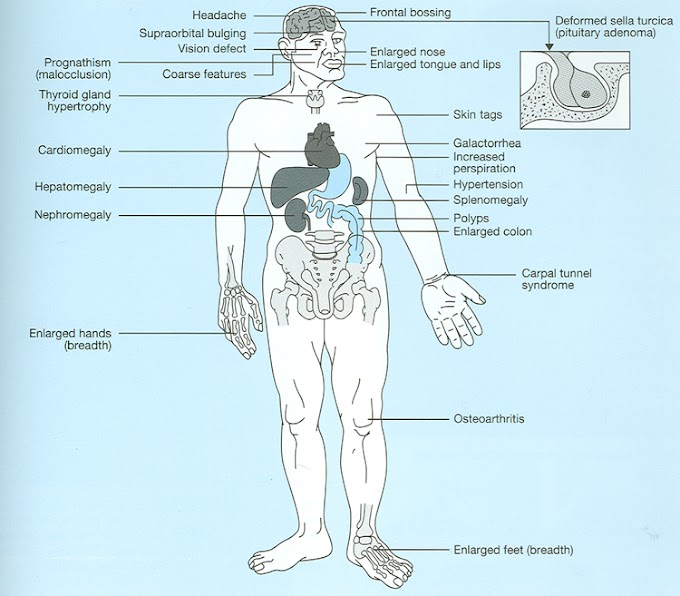 Definition
DefinitionThyroid cancer is cancer of the thyroid gland. This gland makes thyroid hormone and is located in the front of the neck. Tumors of the thyroid gland often appear as bumps in the neck, called nodules. In most cases, thyroid nodules are not cancerous. Those that are cancerous have the potential to spread throughout the body.
Papillary Carcinoma – the most common type. It usually grows very slowly, and often spreads to lymph nodes in the neck. If caught early, this type of thyroid cancer is often curable.
Follicular Carcinoma – the second most common type. It usually stays in the thyroid gland but can spread to other parts of the body, such as the lungs and bones. It does not usually spread to the lymph nodes. If caught early, this type of thyroid cancer is often curable.
Anaplastic Carcinoma – a rare form of thyroid cancer. It quickly invades the neck and other parts of the body, and is often fatal.
Medullary Thyroid Carcinoma (MTC) –a form of cancer that develops from cells in the thyroid gland called C-cells. It often spreads to the lymph nodes, lungs, or liver before a thyroid nodule has been discovered. There are two types of MTC:
• Sporadic MTC
• Familial medullary thyroid carcinoma (FMTC)
Thyroid Lymphoma –a rare type of thyroid cancer. Many cases occur in people who have a disease called Hashimoto's thyroiditis, in which the immune system attacks a person's own thyroid gland.
Causes
The exact cause of thyroid cancer is unknown.
Risk Factors
A risk factor is something that increases your chance of getting a disease or condition.
• Diet low in iodine
• History of radiation to the head, neck, or chest, especially in infancy or childhood
• Family history of thyroid cancer
• Sex: Female
• Age: 30 and over
Symptoms
Symptoms may include:
• A lump in the neck
• Neck pain, sometimes going up to the ears
• Hoarseness
• Difficulty swallowing
• Difficulty breathing
• Persistent cough
• Enlarged lymph glands in the neck
Diagnosis
The doctor will ask about your symptoms and medical history, and perform a physical exam. This may include a careful examination of your neck to look for lumps or abnormalities.
Tests may include:
Fine Needle Aspiration – removal of fluid and cells from a thyroid nodule with the use of a very thin needle. This test can be done in the doctor's office and may or may not require a local anesthetic.
Blood Test – cannot detect cancer, but can help determine the overall condition of the thyroid gland.
Thyroid Scan – x-rays taken after radioactive iodine is injected into the blood. The iodine is absorbed by the thyroid gland, causing it to light up and be more visible on x-ray.
Ultrasound – a test that uses sound waves to examine thyroid nodules.
Surgical Biopsy – removal of a sample of thyroid tissue to test for cancer cells.
Treatment
Once thyroid cancer is found, staging tests are performed to find out if the cancer has spread and, if so, to what extent. Treatment depends on the stage of the cancer.
Treatments include:
Surgery – surgical removal of part or all of the thyroid gland, and possibly nearby lymph nodes. Depending on how much of the thyroid gland is removed, it may be necessary to take thyroid hormone pills after surgery.
Radioactive Iodine Therapy – using large doses of radioactive iodine to destroy the thyroid gland and thyroid cancer without affecting the rest of the body. This treatment is used to destroy thyroid tissue not removed by surgery and to treat thyroid cancer that has spread to lymph nodes and other parts of the body.
External Radiation Therapy – the use of radiation to kill cancer cells and shrink tumors. Radiation is directed at the tumor from a source outside the body.
Chemotherapy – the use of drugs to kill cancer cells. Chemotherapy may be given in many forms including: pill, injection, and via a catheter. The drugs enter the bloodstream and travel through the body killing mostly cancer cells, but also some healthy cells. Chemotherapy use in the treatment of thyroid cancer is investigational only; that is, chemotherapy has not been shown to effectively control or kill thyroid cancer.
Prevention
Because the exact cause of thyroid cancer is unknown, finding it early and treating it is the best way to prevent dying from the disease:
• Between the ages of 20 and 39, have a physical exam of the thyroid every 3 years.
• Age 40 or older, have a physical exam of the thyroid every year.
Exposure to radiation is a major risk factor for thyroid cancer, therefore:
• Avoid unnecessary exposure to radiation.
• If you have been exposed to radiation of the head, neck, or chest, particularly as a child, have frequent checks for thyroid cancer.




0 Comments